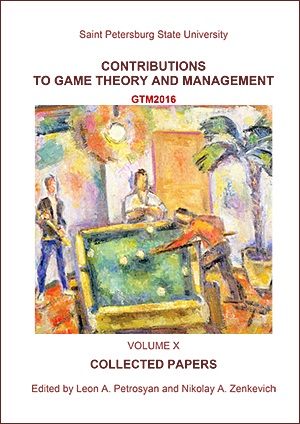Information Pooling Game in Multi-Portfolio Optimization
Abstract
In this paper, an information pooling game is proposed and studied for multi-portfolio optimization. Our approach differs from the classical multi-portfolio optimization in several aspects, with a key distinction of allowing the clients to decide whether and to what extent their private trading information is shared with others, which directly affects the market impact cost split ratio. We introduce a built-in factor related to the clients' vertical fairness regarding the outcomes, which is termed as “dissatisfaction indicator”. With balanced horizontal dissatisfactions across all accounts, the main formulation guarantees that no client is systematically advantaged or disadvantaged by the information pooling process. This is a novel mechanism to incorporate both the horizontal and vertical fairness in the optimization process. We show that information pooling solution outperforms the pro-rata collusive solution from fairness aspect, and the Cournot-Nash equilibrium solution for its Pareto optimality. Moreover, the empirical results suggest that within our framework, information pooling has non-negative impact on all participants' perceived fairness, although it may hurt some account's realized benefit compared to null information pool.
Keywords:
information pooling, multi-portfolio optimization, horizontal fairness, vertical fairness
Downloads
References
Downloads
Published
How to Cite
Issue
Section
License
Articles of "Contributions to Game Theory and Management" are open access distributed under the terms of the License Agreement with Saint Petersburg State University, which permits to the authors unrestricted distribution and self-archiving free of charge.




